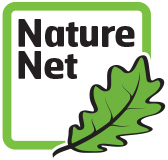
I was on a road trip earlier this summer when I caught the tail end of an interview on the Larry Meiller Show about beavers. Meiller’s guest, Bob Boucher, was making a case for beavers as environmental and ecological engineers who could help solve the flooding issues Milwaukee faces on an increasingly frequent basis. Boucher, who considers himself a “Beaver Believer,” explained that beavers are a “keystone species.” This means their presence on the land impacts the surrounding habitat and increases biodiversity. Just as important – or perhaps more so – are the environmental impacts beaver dams create, including increasing water quality, reducing phosphorus loading, and stabilizing the hydrologic systems in the area.
“Re-Beavering” the Watershed
As climate change increases the likelihood of large storm surges with greater amounts of rainfall, stabilizing the flow of water has become increasingly important. With this in mind, Boucher created a research team with experts from UW-Milwaukee, the Milwaukee Riverkeepers, and the Milwaukee Metro Sewerage District to better understand what “re-beavering” 900 square miles of the Milwaukee river basin would look like. Using existing maps and hydrologic data, the team created simulated models with 52 beaver lodges added upstream. They then ran hypothetical situations where 10 or more inches of rain would fall.
They found that where 10+ inches of rain would flood downtown Milwaukee with current-day settings, the beaver dams would reduce peak flood levels by 30-40%. This saves the people and property in downtown and surrounding areas, but also spares the economic impact of damaged infrastructure and stormwater storage – and it’s all done where “the beavers are working for free, 24-hours a day and don’t [need] any health insurance,” Boucher quipped. You can listen to the full episode and get the details from Wisconsin Public Radio.
Beavers as Heroes
And, just a few days ago, as this idea of beavers as environmental champions was simmering in the back of my mind, another story came up that examined beaver dams’ impact on trout streams. While the debate over their impact as positive or negative lingers, it’s clear beavers are making headlines across the US. They’ve been touted as environmental heroes in articles from the New York Times, the San Francisco Chronicle, and the Los Angeles Times (all in September, 2022).
Some note that beavers’ new-found high regard may be due, in part, to the work of researcher (and now stop-motion animator), Emily Fairfax. Fairfax’s 2020 research found that the wetlands beavers create helps ease the impact of wildfires. Her #beaver tweet has gone viral, with over 500K views.
As a scientist I’ve had an “elevator speech” prepared for a few years now.
This year I made an “elevator video” & let me tell you: people enjoy seeing my research way more than just hearing about it!
So what do #beavers have to do with #wildfire? Watch (with sound) & find out! pic.twitter.com/axc523sRgq
— Dr. Emily Fairfax (@EmilyFairfax) February 17, 2019
Learn More About Beavers
Want to learn more? Check out this PBS Terra episode about beavers ability to combat drought and wildfires:
In Case You Missed It…
News from Nature Net Members
| Upham Woods celebrated the recent expansion of their property in the Wisconsin Dells. The new expansion is an additional 1.5 acres to the northwest of the existing Upham Woods land. Guests of the Upham expansion celebration were able to visit the new area as well as experience Upham’s nature programming. | The MMSD Planetarium has a new director: Ben Senson! Previously a science teacher at Memorial High School and co-director of the MMSD Planetarium & Observatory, Ben is now hard at work getting fall programming up and running. The Planetarium also recently received a new Digistar 7 system, with more upgrades to come! | The facilities at Salmo Pond County Park in Cross Plains have been newly improved to increase accessibility. The park now features an accessible pier for shore fishing as well as an accessible bathroom, picnic table, and bench. The area was dedicated to longtime accessibility advocate in Dane County Parks, Dan Wisniewski. |
More from Nature Net…
| For Families: | For Educators: | Upcoming Events: |
 |
 |
 |
| Summer break may be over, but you can still go exploring at Nature Net sites with Nature Passport! | Are you planning fun field trips or nature projects for your students this semester? Funding is available through the Nature Express grant program! | Our calendar is full of fantastic autumnal events for all ages! Check out the Nature Net joint calendar. |




